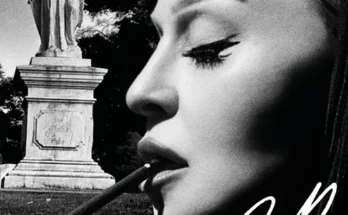Madonna Louise Veronica Ciccone, known globally by her first name alone—Madonna—is far more than a pop superstar. She is a cultural force, a provocateur, a fashion chameleon, a business mogul, and an enduring symbol of reinvention. Born on August 16, 1958, in Bay City, Michigan, Madonna has built one of the most prolific and controversial careers in entertainment history. Over four decades, she has remained at the forefront of music, style, and social change, making her one of the most influential figures in modern pop culture.
Early Life: A Detroit Dreamer
Madonna was born to Silvio Ciccone, a design engineer, and Madonna Fortin, a homemaker. Her mother died of breast cancer when she was only five years old, a traumatic event that profoundly influenced her life and artistic expression. Raised in a strict Catholic household with six siblings, Madonna displayed a rebellious spirit early on. She was a straight-A student and a cheerleader who went on to study dance at the University of Michigan on a scholarship. In 1978, she moved to New York City with only $35 in her pocket to pursue a career in dance—a decision that marked the beginning of her relentless climb to fame.
The Rise of a Pop Queen
Madonna began as a backup dancer and drummer in several bands before releasing her self-titled debut album in 1983. With hits like Holiday, Lucky Star, and Borderline, she quickly caught the public’s eye. But it was her 1984 follow-up album, Like a Virgin, that catapulted her to superstardom. The title track, along with the iconic MTV performance in a wedding dress, defined a new era of pop provocativeness.
Throughout the 1980s, Madonna released a string of successful albums, including True Blue (1986) and Like a Prayer (1989), showcasing her ability to fuse dance-pop with deeper themes of religion, feminism, and identity. Her provocative videos and boundary-pushing performances often sparked outrage but also broke down long-standing taboos, particularly regarding female sexuality.
A Master of Reinvention
One of Madonna’s greatest talents has been her ability to reinvent herself continuously. From the Material Girl of the 1980s to the spiritual seeker of the Ray of Light (1998) era, she has deftly navigated shifting trends while influencing them. Her transformations have not only kept her relevant but often placed her ahead of the curve.
The 1990s saw Madonna pushing further into controversy with the Erotica album and her Sex book, a coffee-table volume filled with explicit imagery and provocative commentary on desire and identity. While critically divisive, these works redefined the boundaries of pop expression and cemented her role as a fearless trailblazer.
Cinematic Ventures and Critical Recognition
Madonna’s film career has been a mixed bag, with roles in Desperately Seeking Susan (1985), Dick Tracy (1990), and the critically panned Body of Evidence (1993). However, her portrayal of Eva Perón in Evita (1996) earned her a Golden Globe for Best Actress. Despite her polarizing acting ventures, her cinematic efforts reflect her commitment to evolving as an artist and storyteller.
Businesswoman and Cultural Entrepreneur
Beyond music and film, Madonna has built an empire. She founded Maverick Records in 1992, helping to launch the careers of artists like Alanis Morissette. Her fashion lines, children’s books, skincare brand MDNA Skin, and involvement in digital art and NFTs demonstrate a keen understanding of the intersection between art and commerce.
She is also a passionate philanthropist, particularly through her work with Raising Malawi, a non-profit supporting orphans and vulnerable children in Malawi. Her activism has extended to LGBTQ+ rights, HIV/AIDS awareness, and global education, often placing her at the heart of cultural and political conversations.
Legacy and Influence
With over 300 million records sold, Madonna is recognized as the best-selling female recording artist of all time by the Guinness World Records. She holds numerous Billboard and MTV records and was inducted into the Rock and Roll Hall of Fame in 2008.
More than numbers, however, Madonna’s impact lies in her unapologetic individuality. She opened doors for future generations of artists—Lady Gaga, Beyoncé, Rihanna, and Taylor Swift, among others—who cite her as a major influence. Her approach to fame as a form of performance art has changed how celebrity is understood and wielded in the modern age.
The Queen Endures
Even into her 60s, Madonna shows no sign of slowing down. She continues to tour, create new music, and challenge societal norms. Her Madame X tour (2019–2020) was a theatrical and political journey through her alter ego, blending performance art, world music, and activism. She remains fiercely relevant, not by clinging to past glories but by constantly reinventing the present.
Conclusion: The Immortal Madonna
Madonna Louise Veronica Ciccone is more than a pop star—she is a cultural institution. Her career is a masterclass in reinvention, resilience, and radical self-expression. Few artists have sustained such a long and dynamic presence across so many aspects of culture. She has inspired generations to speak louder, think bigger, and live bolder. Whether adored or criticized, Madonna is a mirror of our times, reflecting both our desires and our discomforts.
In the pantheon of global icons, she is not just a queen—she is the architect of her own empire. And if history is any guide, she’s not done building it yet.



